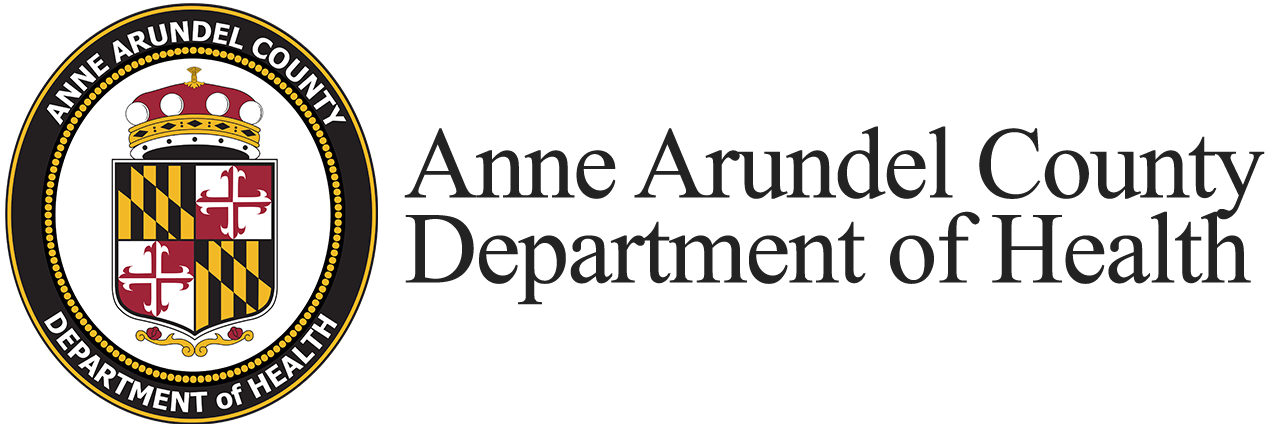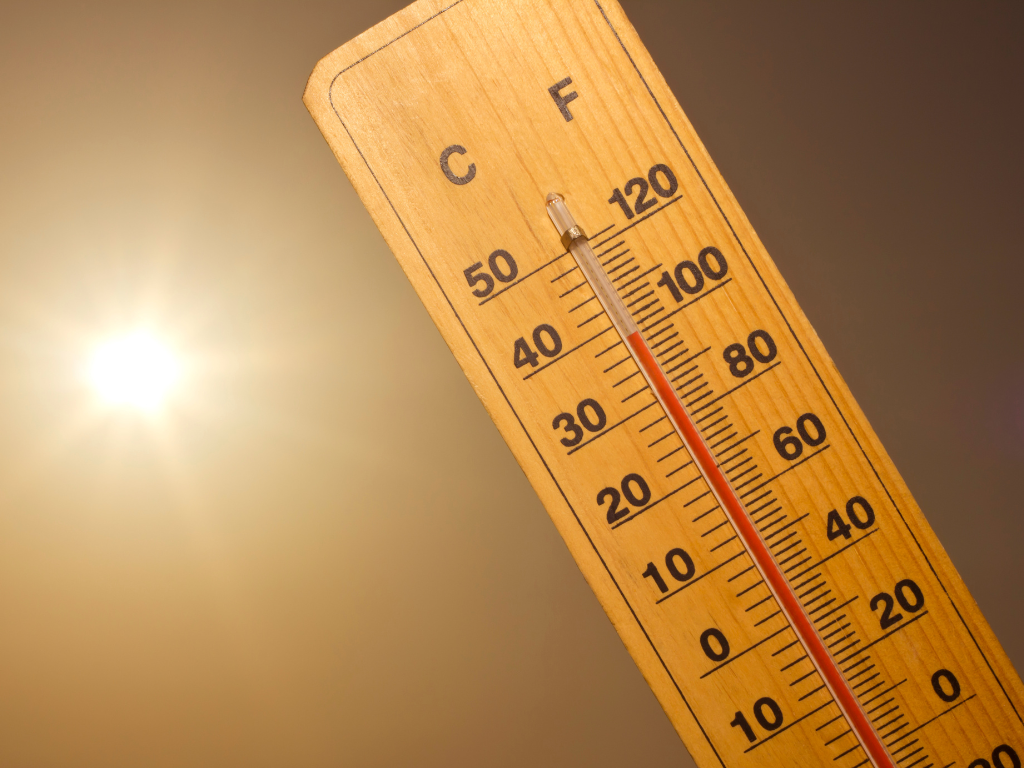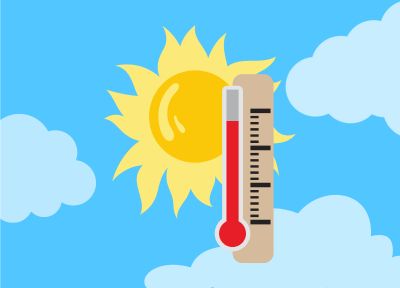The elderly, young children, those who are overweight and those who have chronic health conditions (like heart disease or diabetes) are especially at risk of dehydration and overheating. This can lead to heat exhaustion or heat stroke.
The following suggestions can help you avoid heat-related illnesses:
- Drink fluids. Water is the best fluid to drink.
- Avoid caffeine and alcohol. They can make dehydration worse.
- Wear loose-fitting, lightweight and light-colored clothing to protect against the sun’s rays.
- Wear sunglasses and a wide-brimmed light-colored hat.
- Remember to use sunscreen with an SPF 30 or higher to protect your skin.
- Never leave children or pets in a car unattended — even with the windows open!
- Instead of large meals, eat smaller meals more frequently.
- Limit strenuous activities outdoors. Slow down and take frequent breaks.
- Limit outdoor activities from 10 a.m. to 2 p.m. and on days when poor air quality is announced.
- Check frequently on the elderly and those in poor health. They may not be able to handle heat stress as well.
The first sign of heat illness is often heat cramps.
Some of the signs of heat exhaustion are:
- heavy sweating
- cold pale clammy skin
- headache
- nausea
- vomiting
- muscle or abdominal cramping
- fast weak pulse
- fainting
- weakness
- thirst
- an altered ability to think
If someone has signs of heat exhaustion, immediately take the person to a cool place and provide water or a sports drink. If symptoms persist, seek medical attention by calling 911 at once.
Heat stroke, the most serious heat-related illness, occurs when the body temperature increases to 104°F or higher and requires immediate medical treatment. Symptoms include hot dry and reddened skin (no longer able to sweat), nausea and vomiting, rapid irregular pulse, seizures, confusion and disorientation, and delirium. Call 911 immediately.
Electric fans may provide comfort, but when the temperature is in the high 90s, fans will not prevent heat-related illness. Taking a cool shower or bath or moving to an air-conditioned place is a much better way to cool off. Air conditioning is the strongest protective factor against heat-related illness. Exposure to air conditioning for even a few hours a day will reduce the risk for heat-related illness. Consider visiting a shopping mall or public library for a few hours.
Whether you are working outdoors, attending social functions or relaxing by the water, it is important to take the proper precautions in warm weather.
For more information, go to Sun Safety and Sun and Water Safety.


